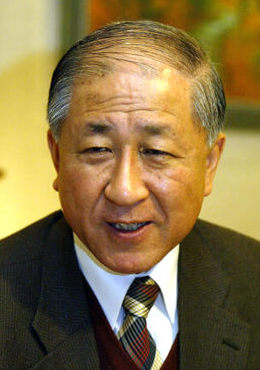 |
S.K. could become host of next UN forum on climate change
Kim Young Ho, President of Yuhan College There can be no debate that the greatest issue facing the human race today is climate change and the rapid decrease in the diversity of species. In order to address this problem, an agreement was reached among members of the UN’s Framework Convention on Climate Change to try and resolve this problem under the Kyoto Protocol. Every two years there is a meeting of the Conference of the Parties to the Convention on Biological Diversity to discuss the threats facing the world’s species, and it is likely that a new guiding framework will be adopted at the 10th such conference in 2010. If this conference opens in Seoul, it could be called the Seoul Protocol, and if on Jeju Island, the Jeju Protocol. While the world follows the Kyoto Protocol to combat climate change, so too could it abide by the "Seoul Protocol" for preserving species diversity. At the committee’s meeting in the Netherlands in 2002, the goal "to achieve by 2010 a significant reduction of the current rate of biodiversity loss at the global, regional and national level" was set, and progress toward that objective is partly underway. With 188 countries party to the convention and in view of the convention’s scale, importance, and ripple effect, numerous countries will compete to be its host. The issue of species diversity is a serious one, both from environmental and economic perspectives. From the former view, global warming and industrialization have sharply decreased species diversity. The World Wildlife Federation determined that the "ecological footprint," a measure of the influence left by economic activities on the earth, increased threefold between 1961 and 2003, while from 1970 to 2003, the diversity of terrestrial species has decreased by 31 percent. Since the advent of the 21st century, some 40,000 species have disappeared from the Earth, with 500 of these vanishing from the Korean peninsula alone. Currently, the fish of Korea’s coastal waters are dying out. The agent driving these various organisms to extinction is but a single species - human beings. When one species disappears, it is impossible to bring it back. That is why in England, the "Noah’s Ark" Project is underway to house information about endangered species.The economic aspects of this pledge are also quite important, with every microorganism carrying with it the potential to bring a great fortune. Organic resources have become national ones, as analysis of one seed's genome may lead to commercial success. The world is engaged in a silent "seed war," searching not only tropical rainforests but every corner of the world for specimens. The Korean government, too, has begun a ten-year project to build a global biological diversity cooperation network. In particular, the fair distribution of economic rights over genetic resources is surfacing as a topic of discussion. It is an issue of how to divide the profits of a product derived from particular genetic resources between the nation that produces the product and the one that supplied the genetic materials. The creation of such rules will certainly become a sticking point in discussions of the protocol. Bringing the conference to Korea will provide a decisive opportunity for the restoration of Korea's ecology-centered thought, as well as a boost to Korea's ecological economy, but the issues the conference is attempting to address are ultimately ones of civilization's transformation. The prodigal son of humanity, having absconded from the house of nature, must once more make his way back home, claim his filial spot, and embrace a spirit of fraternity with his siblings. In such a manner, humankind must expand upon the exhort left by Korea’s legendary first king, Tangun, of improving the lot of humanity, and also strive for the good fortune of nature, as well. Fittingly, this conference will provide an alternative order to that proposed to us by neoliberalism. The ultimate destination of true neoliberalism is, after all, the end of diversity. The alternative form of globalization presented here is one that embraces diversity. A form of globalization that respects and promotes diversity in species, in culture, and in industry must take shape. Rather than casting her lots with "the axis of evil" or "the axis of good," South Korea must take the initiative in signing up with "the axis of diversity." As the spot for the 2010 conference will be decided at the 2008 symposium held in Germany, South Korea has a great chance of success if it puts its efforts into it. After all, as the talks have been held mostly in Europe and South America until now, Asian countries have an advantage. As Malaysia hosted it last time, it is now East Asia’s turn within the greater Asia Pacific region. Within Northeast Asia, Japan brought the climate conference to Kyoto and China will host the Beijing Olympics followed by the Shanghai Expo. Moreover, as a country must emerge to mediate between developing and developed nations, South Korea is the logical choice. Our case is made stronger with South Korea ranking among the leading countries in Asia to store information regarding organic resources in the Global Biodiversity Information Facility. Following the 2008 Ramsar Convention on Wetlands and preceding the 2012 summit in Rio de Janeiro, the 2010 conference can play a large role in leading Korea on to a renaissance of an ecologically aware civilization. It is also worth considering holding a candlelight vigil to represent every species that is facing extinction, in order to forward the idea that rights do not belong solely to humans, but to all forms of life. Please direct questions or comments to [englishhani@hani.co.kr]





